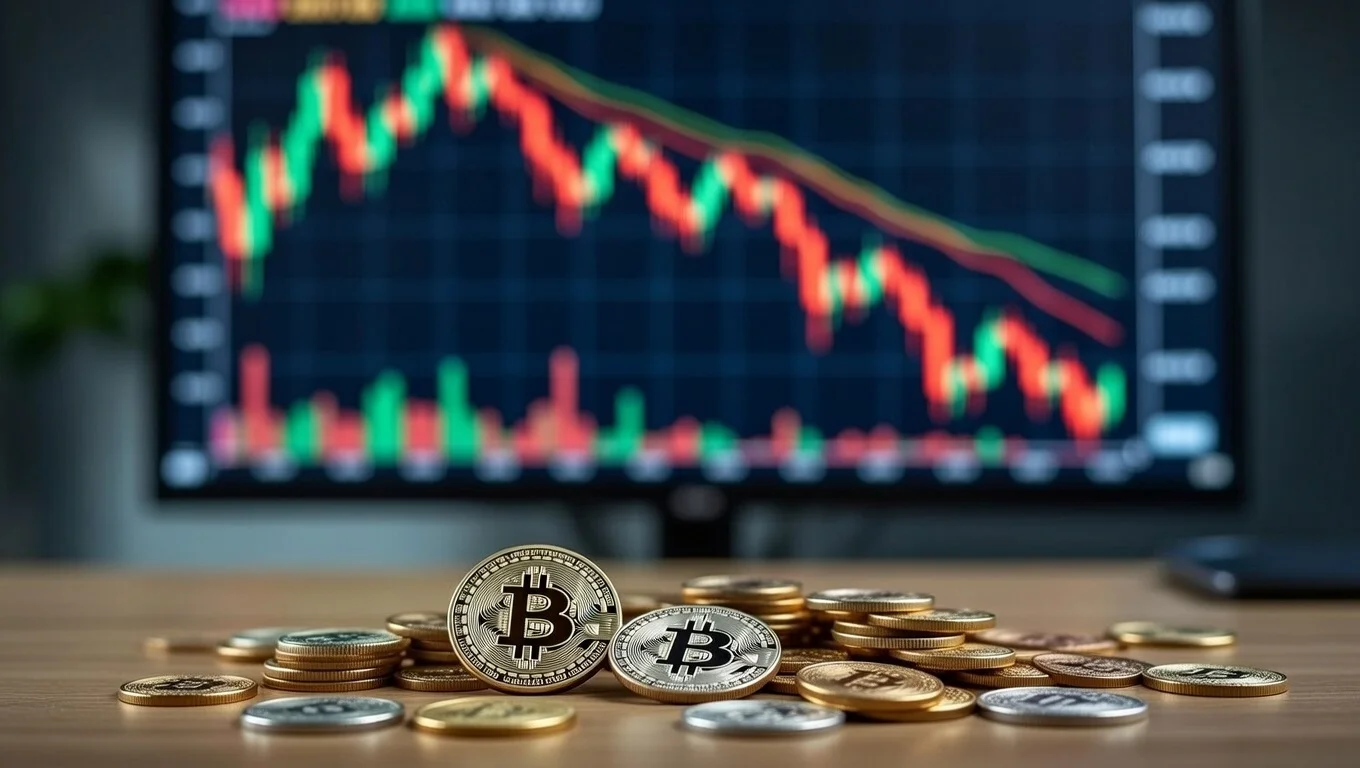Home >> Blog >> What is Pre and Post Market?
What is Pre and Post Market?

Table of Contents
- Introduction
- How Pre-Market and Post-Market Trading Works
- What is Pre Market?
- Objectives of pre-market trading
- What is Post Market?
- Objectives of Post-Market Trading
- Understanding the Basics: What Are Pre and Post Market Hours?
- How Do Pre-Market and After-Hours Sessions Work?
- Reasons for Pre and Post Market Trading
- Disadvantages of Pre and Post Market Trading
- Conclusion
Introduction
Indian stock markets, especially the National Stock Exchange (NSE) and Bombay Stock Exchange (BSE) - are usually open between 9:15 am and 3:30 pm. It is called Regular Market Hours; during this time, investors can buy or sell the securities. It is important to know that both NSE and BSE stock markets do not operate on weekends and national holidays.
However, with the adoption of new technology and increasing demand for business, these hours have been extended to include pre-market and post-market trading, which means along with regular market hours, the market is also open between 9 to 9:15 am and then between 3:40 to 4 pm. Known collectively as extended trading hours, Pre- and post-market trading sessions allow investors to buy and sell shares between 9 am and 9:15 am during pre-market trading and between 3:40 pm and 4 pm for post-market trading sessions.
How Pre-Market and Post-Market Trading Works
Globally meaningful exchanges observe extended trading hours, as with the Indian markets. Indian regulator Securities and Exchange Board of India (SEBI) had introduced the facility of extended trading hours to bring the Indian market in line with the global markets.
What is Pre Market?
Pre-market is a relatively new concept in the Indian Stock Market. Before 2010 there was no concept of Pre-Market trading. Then, NSE introduced the concept of the pre-open session or pre-market trading to reduce volatility or stabilize the prices of securities due to some significant event or announcement coming overnight before the regular market opening. For example, special events or announcements by a company, such as mergers and acquisitions, may impact investors. One of the main benefits of pre-market trading is that it allows investors to react to news and events outside regular trading hours.
Pre-market trading enables investors to trade before the regular market hours. It helps to open the market at prices determined by the genuine demand and supply of financial securities instead of following the price trends determined by the first trade. The pre-open session is held on NSE and BSE between 9:00 am to 9:15 am.
How does it work?
During the first 8 minutes of the pre-market trading session, i.e., between 9 am to 9:08 am, orders are collected, changed, or canceled. After that, investors are allowed to place limits and market orders. This order collection window gets closed anytime between 9:07 am to 9:08 am.
No fresh orders can be placed in the pre-market trading session after closing this window till 9:15 am. On the other hand, orders placed during the first phase of the window are matched, and trades are confirmed. Therefore, investors can only place orders on the equity segment during the order collection period.
Objectives of pre-market trading
- Immediate response to cues of the U.S. and Asian markets.
- Acting on significant corporate announcements (earnings, management).
- Positioning for the trading day ahead, particularly for day traders and institutions.
What types of orders are allowed in the pre-market?
Indian stock exchanges allow traders to place two (limit and market orders) while buying and selling stocks in pre-market trading. Limit orders are instructions to sell or buy a stock at a specific price or higher. A market order is one where you can immediately buy or sell at the current market price. However, traders are only allowed to trade that are valid for the pre-market session as it may lead to speculation.
While pre-market trading looks advantageous for investors because it provides an opportunity to make the first move, especially when news developments are driving the market, it still comes with its own set of risks that investors should be aware of. Because of this, investors observe pre-market trading activity rather than participate in it.
What is Post Market?
Similar to pre-market trading, post-market trading is permitted only for equity trading. The post-market trading enables investors or traders to trade after the close of regular market hours. During the post-market trading session, the public can buy or sell orders in equity at the market price.
However, it is essential to note that no matter the cost the investor places, the order will always be placed at the "closing price." For example, suppose the closing price of Tata shares is Rs 800 at 3:30 pm, then between 3:40 pm to 4:00 pm in this post-market trading. In that case, Investors can place market orders to buy/sell Tata shares at the market price (to be charged at Rs.800). The original purpose of post-market trading was to give this extra time to those who made mistakes. Usually, the post-market session could be more active, and investors can watch the movement of shares by opening the Market Watch window from 3:40 pm to 4:00 pm.
How does it work?
During the first 10 minutes of the post-market trading session, i.e., between 3:30 pm to 3:40 pm, the exchanges are closed for trading even though they are functional, but they are closed and will not accept any orders that investors want to place during that time. The reason for their closure is that, at this time, the stock exchanges calculate the closing prices of all stocks, indices, and derivatives.
For stocks, it's straightforward - investors take the weighted average price from 3:00 pm to 3:30 pm, and investors get their closing price. After computing the closing price, the exchanges open for the final round of trading between 3:40 pm to 4:00 pm; in the meantime, traders can place buy or sell orders; this session of 3:40–4:00 pm is called "Post Market Session."
Objectives of Post-Market Trading
To respond to after-hours earnings reports (many U.S. companies release results shortly after 4 PM).
To accommodate sudden, late-breaking economic or political shifts.
To hedge or reposition portfolios based on shifts in overnight, global markets.
Understanding the Basics: What Are Pre and Post Market Hours?
Pre and post market refer to trading hours outside of the regular market hours.
- Pre market: the session that takes place before the regular market opens.
- Post market: the session that occurs after the regular market closes.
These sessions give investors the opportunity to react to and trade market-moving news before the regular trading hours and after the market closes, respectively.
How Do Pre-Market and After-Hours Sessions Work?
1. Electronic Communication Networks (ECNs):
ECNs connect investors directly to one another and match their buy and sell orders, eliminating the need for a broker or dealer.
2. Limited Participants:
These trading sessions are primarily populated by institutional investors and high-net-worth clients, although more online brokerages are offering pre-market and after-hours trading to their retail clients.
3. Volatility and Liquidity:
The lack of trading volume and the size of orders are the main causes of excessive volatility and drastic price changes.
4. Price Discovery:
The pre and post market sessions are important for determining price equilibrium and predicting the next day's opening price.
Reasons for Pre and Post Market Trading
1. Responding Quickly to Market Changing Events
With premarket sessions, traders can respond quickly to earnings announcements and other global developments without waiting for the market to open.
2. Improved Entry or Exit Positions
There are instances where traders can capitalise on better price opportunities when the wider market is still inactive.
3. Portfolio Adjustment and Hedging
Late day global market movements can trigger institutions and bigger players in the market and effect a rebalance, hedge or adjust a portfolio.
4. Identifying Market Trends Early
Data from premarket trading sessions can indicate how the market is likely to perform once it opens for the day.
Disadvantages of Pre and Post Market Trading
With premarket trading, the potential for making a loss is just as great as the potential for making a profit. Here are some of the disadvantages when trading in premarket hours:
Low Liquidity: It can be difficult to execute a large trade when there are very few buyers and sellers.
High Volatility: The price of a stock can change drastically and quickly, and can be triggered by very little news.
Wider Spreads: There can be a large difference in price when buying and selling a stock, making it difficult to realize profit on a trade.
Limited Access: Some brokers will not allow trading at all in extended hours.
Unreliable Indicators: A stock with a very large premarket trading volume does not guarantee that the price will be high when the market opens.
Conclusion
Pre- and post-market trading can be profitable for traders trying to profit from expected news or provide a means to enter or exit a stock market when unexpected news is announced. Nevertheless, only some traders recommend systematic trading after regular market hours. Regular market trading sessions provide better liquidity and a more efficient market, which makes all prices more reflective of fair value. Understanding that different brokerages have different rules on trading hours is essential.
Currently, the volume of shares traded and the number of traders trading during pre- and post-market trading hours are low. As a result of less trading activity, higher volatility can be expected. So, the opening price of a stock in the stock market does not always correspond to its closing price in post-market trading. Furthermore, a stock's share price during pre- and post-market trading hours may differ from that during regular market hours.
DISCLAIMER: This blog is NOT any buy or sell recommendation. No investment or trading advice is given. The content is purely for educational and information purposes only. Always consult your eligible financial advisor for investment-related decisions.
Author
Frequently Asked Questions
Many investors and traders watch the pre-market trading activity in anticipation of the regular trading session to judge the strength and direction of the market. It helps in opening the market at prices determined by the actual demand and supply of financial securities.
This is allowed because investors often want a way to buy and sell stocks outside of normal trading hours. The small investor has the same opportunity as the large investor in pre-market and post-market trading. They seek to gain a leg up on the competition by reacting quickly to news announcements that happen at the regular market close.
The opening price is determined based on the interaction of genuine demand and supply. An equilibrium price is the balance of the demand and supply factors at which the maximum quantity of the executable is produced. Prices tend to return to this equilibrium unless certain characteristics of demand or supply change.
Share prices may differ from closing prices because post and pre-market traders may have access to information that regular-hours traders did not have. Stock prices may increase or decrease depending on extended trading hours.




















